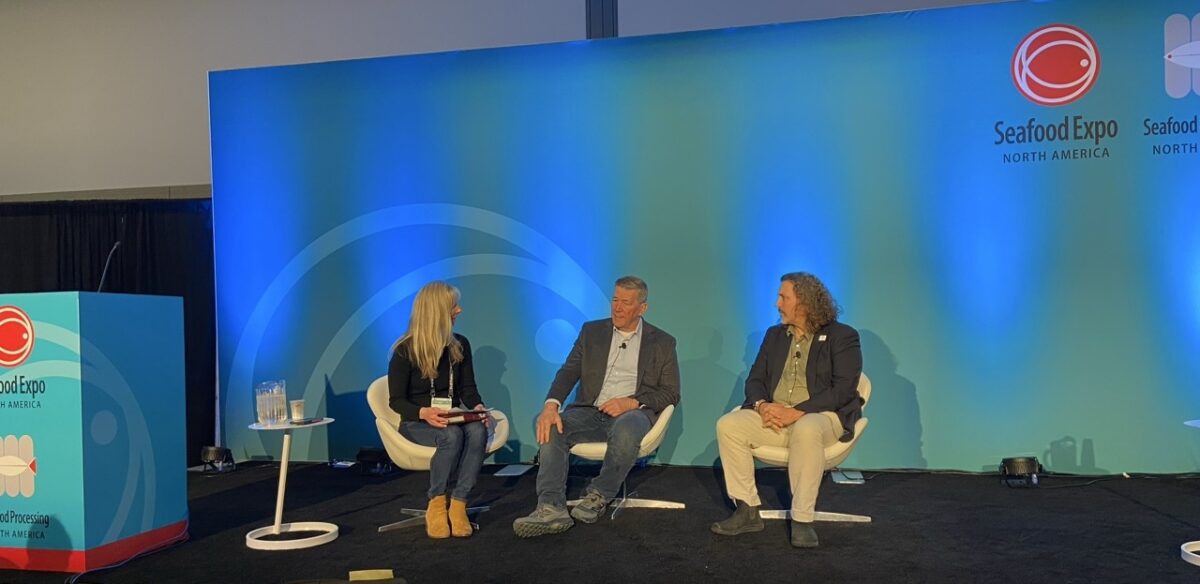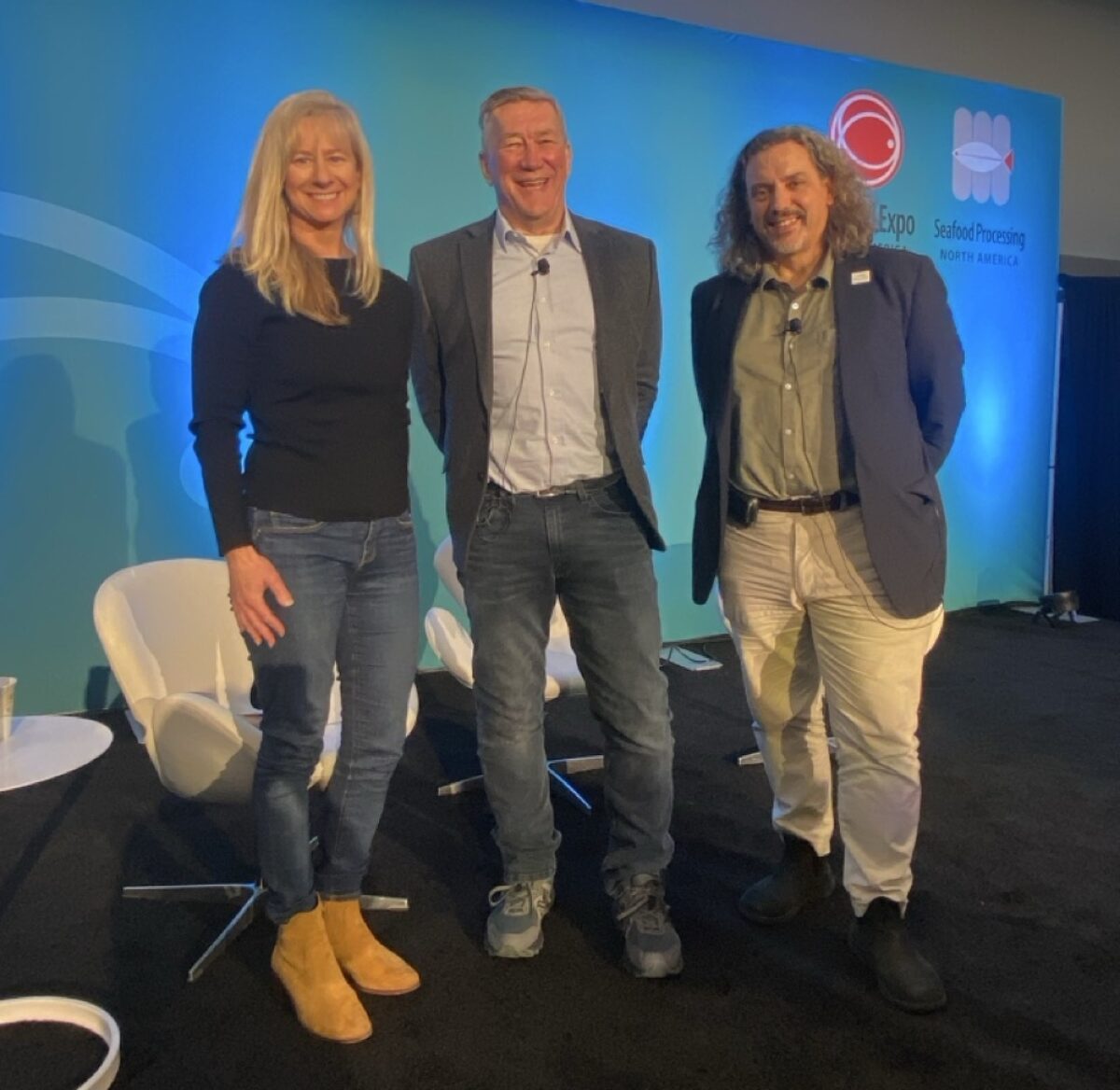
(L-R) Kathryn Novak, Biodiversity and Nature Director, SFP; Chris Ninnes, Chief Executive Officer, Aquaculture Stewardship Council; Jim Cannon, Founder and Chief Executive Officer, SFP
In a wide-ranging conversation, moderated by SFP Biodiversity and Nature Director Kathryn Novak, SFP Founder and CEO Jim Cannon and Aquaculture Stewardship Council CEO Chris Ninnes discussed the future of aquaculture and the collaborative work that SFP and ASC are doing on building a model for landscape-level improvements in aquaculture in Andhra Pradesh, India.
While Cannon and Ninnes have known each other for years, and first began working together through the Certifications & Rating Collaboration, they are excited about the synergies between their two organizations that will arise through this joint work in India. We have a real “convergence of thought” on how to improve aquaculture management, Ninnes said. “Collaboration is a fundamental part of tackling these challenges. No single organization can deliver everything.”
A fundamental part of the work in India is looking at management at a larger scale than the farm level. Farm-by-farm certification is “incredibly important, but not sufficient,” Cannon said. If you invest in better management at the ecosystem level, he added, “it lifts all boats,” benefiting farmers and their communities.
In discussing what “landscape-level improvement” means, Ninnes noted that he is “not fixated on what defines the boundary of where we’re working – it could be ecosystem, it could be watershed, it could be jurisdictional.” However you define it, change needs to be driven locally, through local governance arrangements, policy frameworks, and organizations. “It’s fundamentally about the people involved directly in the production, processing, and local supply chains,” he said. “I can’t do that. Jim can’t do that. Our teams can’t be parachuted in to do that. We can catalyze and facilitate connections,” but ultimately it has to be local.
On a recent trip to Andhra Pradesh, Cannon and Ninnes met with local organizations and individuals who are working to conserve natural ecosystems and improve the sustainability of shrimp farming, and were very impressed with what they saw. “Everything we do in-country should be done by local institutions, and there is tremendous local capacity” in Andhra Pradesh, Cannon said. “Thirty years ago, international organizations sent in expats to do the work, but you don’t need to do that anymore. Our role is just to connect the dots and work through established local players – they will be there long after you’re gone.”

